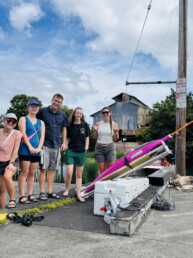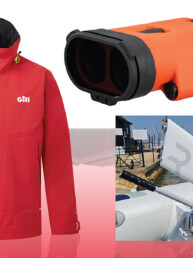For many of us, self-reliance in the marine world is a critical component of being a successful boat owner. The desire to do our own work has its own organic motivations, but it can also be attributed to the often challenging prospect of finding capable contractors who can fix your boat, answer their phones, and show up when expected.Whether it’s because we aspire to be able to replicate these duties in exotic and remote locations, or we are forced to rely on ourselves because we can’t bring in someone who can help — boat owners do a lot of DIY work, and a boat’s diesel engine is no exception.
Even when there is a mechanic nearby, I am a huge supporter of DIY work for all the learning it offers, not to mention the possibility that a DIYer might then fix more things away from the dock. I do, however, see many common issues that arise from DIY engine work — usually from a lack of knowledge or from not taking the time to do things correctly. It is not uncommon for me to get called in when a DIY fix either didn’t do the job or created a new problem.
While it is possible to simply “make things work,” too often a ton of money and time is wasted when trying to find a shortcut to fix something. This column won’t have all the answers, but hopefully it can help you identify some of the most common problems that happen when DIYers attempt a fix themselves.
The engine won’t start
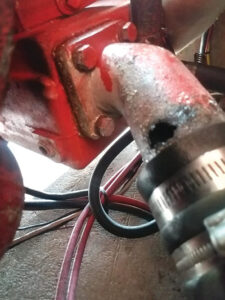
This is one of the most common issues I come across in the field — you go to start the engine and it just clicks or nothing happens at all. No problem right? It’s just a battery or maybe the starter? After spending several hundred dollars on a new starter and battery, the problem still exists… well crap. This is usually when I get called, and one of the first things I do is check for loose and/or corroded connections at the batteries and the starter. I always carry a multimeter with me, and it takes a few minutes to test the battery, cables, fuses, and the starter. Many mechanics make this mistake too, jumping to the conclusion that the battery and/or starter is the problem. Always test and confirm the issue first before throwing parts and money at the problem. Most of the time, the starting issue can be quite simple and cost almost nothing to fix yourself. I commonly find corroded or loose connections at the heavy cables leading to and from the engine. Don’t forget the ground cables, either.
The alarms are going off on the engine panel
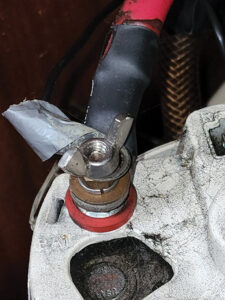
A really important guiding principle and a theme I will keep repeating is to always verify the complaint or issue. If you are getting a wonky reading on your temperature or oil pressure gauges saying you are overheating or have low/high oil pressure, then you need to verify that the problem actually exists before tearing your engine apart looking for a problem that may not actually be there. If your temperature gauge is reading high/low, run to a hardware store and get yourself a cheap infrared temperature gun and confirm that the engine is actually overheating before looking into it deeper. Often, DIYers are quick to tear their entire cooling system apart to find that there was a poor connection on the temperature sensor or that a gauge is going bad. A big one is oil pressure, owners will have a false low oil pressure reading and assume the engine is garbage. The internet doesn’t help with this either. Verify with an analog gauge and get a real oil pressure reading, then move on from there, because it may just be a sensor, gauge, or connection.
The internet isn’t always your friend
Armchair mechanics are some of the worst DIY boat owners that I have ever dealt with. While it can be a struggle to get good information when you are trying to work through a problem yourself, there are lots of good resources that don’t come from Facebook groups or random forums where you have “experts” telling you how to do things incorrectly. YouTube can be a good resource, from a reputable mechanic or expert in the field. I have read and seen some extremely poor advice from people who think they know better and boat owners will take this advice, and then end up doing major damage to their engines as a result. I have seen internet recommendations as ill-advised as the use of starter fluid or disconnecting batteries while the engine is running. Advice this unsound does nothing to help or diagnose the actual issue, and it might make it worse or potentially add a new problem. If you’re unsure about a particular problem, reach out to a local mechanic for a consultation or find a reputable source online for the proper way to complete a job. An hour’s worth of consultation on how to do the job correctly can save hundreds or thousands of dollars down the road.
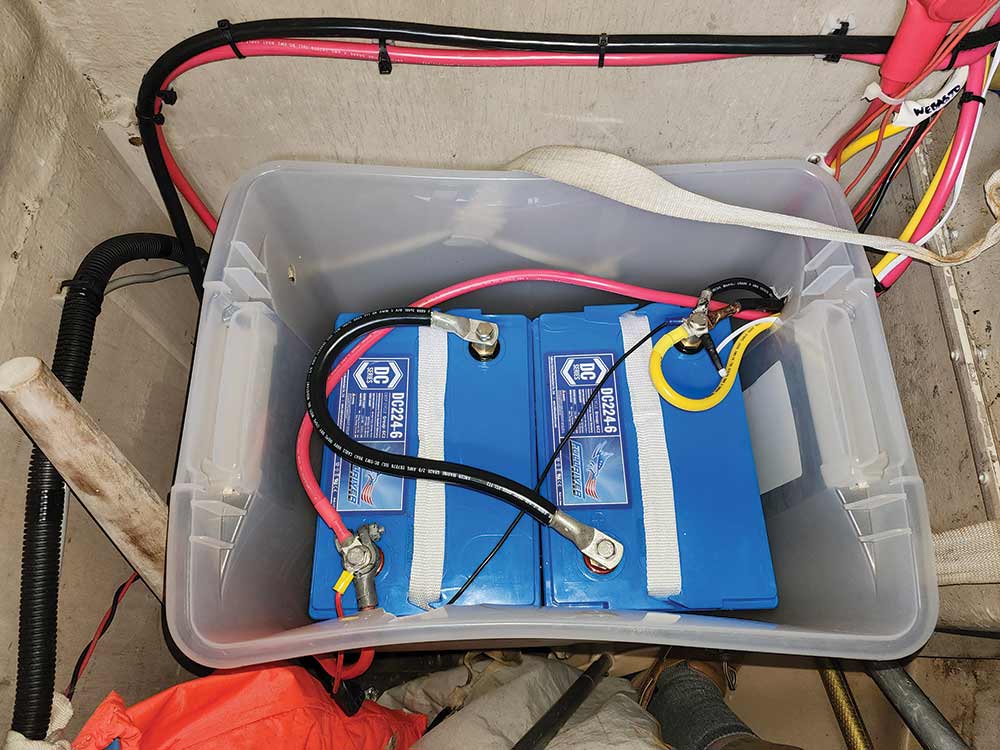
Going cheap when you shouldn’t
One of the final points that I come across most often is the purchase and use of cheap parts and materials that are not cut out for the marine environment. There are ways to save money when working on your engine, and you don’t have to pay full price for everything out there or only buy the absolute top of the line. However, I have watched too many people waste money trying to buy cheap alternatives for their engines that don’t last or work in the first place. I also see this a lot with electrical jobs completed by DIYers where cheaper welding cable and connectors are used instead of marine grade supplies.
I know that marine parts are expensive, we all get that. Still, it’s almost never a better deal to buy cheap and then pay again when a mechanic has to come in to diagnose leaks, mystery issues, failures, and other problems; not to mention the cost of time if you get stranded somewhere instead of enjoying a relaxing cruise. When a mechanic finds an engine part isn’t working well right out of the box, or the cabling and connectors are already falling apart rapidly, we get another reminder that the cheap stuff people buy doesn’t work. Admittedly, some engine manufacturers have a great aftermarket, but not every manufacturer does and boat owners still risk spending double the money when the first parts don’t fit or work. To save money later, spend the money and get the right stuff the first time.
I am a strong proponent of DIY work, as I am also a DIYer of many things and believe we should be able to fix our own things when we need or want to. To properly take care of your boat’s engine, take the time to verify, diagnose, and do things right and you‘ll find that things go much smoother.
Meredith Anderson is the owner of Meredith’s Marine Services, where she operates a mobile mechanic service and teaches hands-on marine diesel classes to groups and in private classes aboard clients’ own vessels.


